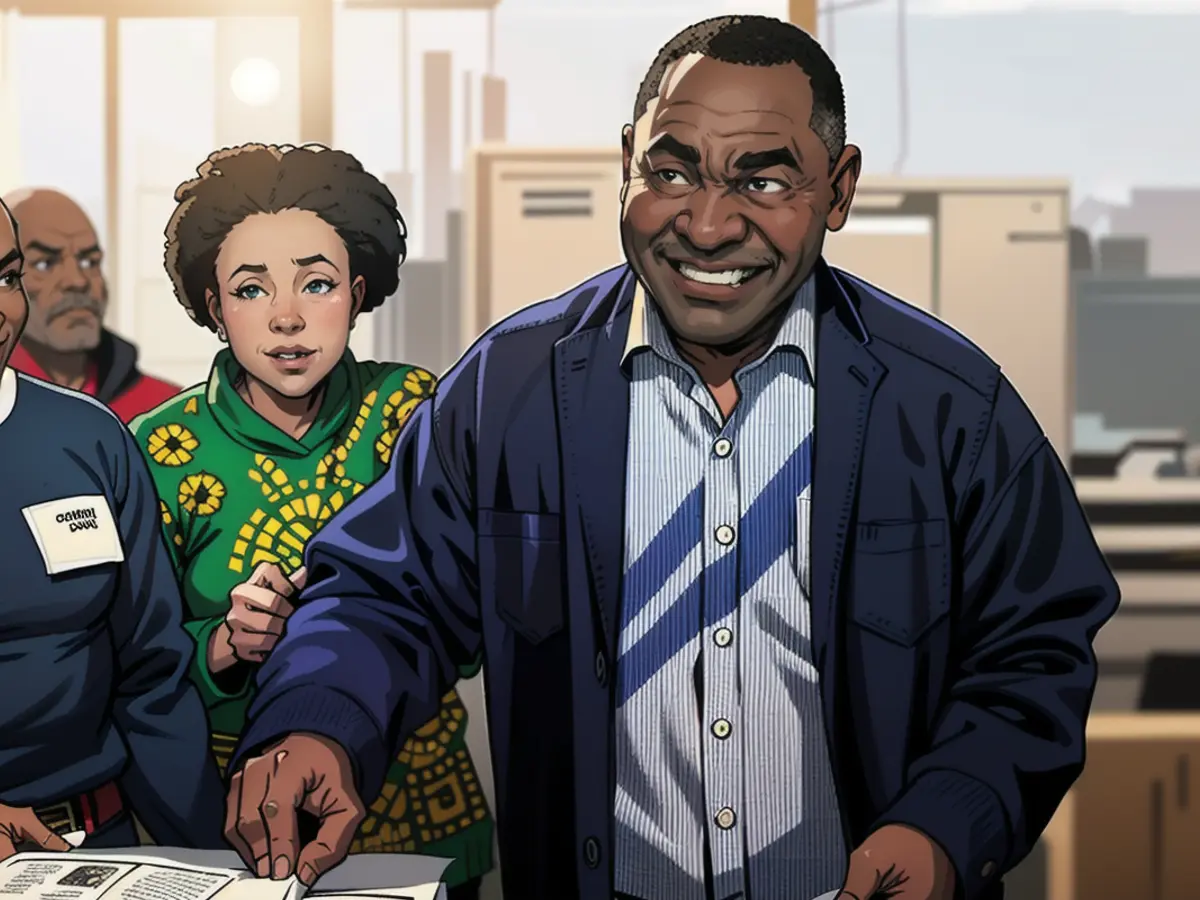Are we seeing the emergence of South Africa's first coalition government?
Since the ANC took control in South Africa 30 years ago, there's been a decline in the economy, high unemployment, and rampant crime. Despite being at the helm since the introduction of democracy in 1994, under Nelson Mandela's leadership, surveys predict that the ANC may lose its majority hold on power for the first time. Election day findings indicate they could be forced to team up with another party.
In a nation of 61 million people, the ANC's reign may be nearing its end. The African National Congress, a substantial political force, has governed alone since 1994. If the predictions are accurate, voters are expected to see diminished support for the organization. The results will be announced on Sunday.
The dismal outcomes are attributed to the ANC's management of government affairs: an unstable economy, sky-high unemployment and poverty, underperforming state-owned enterprises, frequent power outages, problematic water supply, deteriorating healthcare system, and a troubled criminal justice system. Corruption within the political elite is also a notable issue.
For Germany and Europe, these elections have global implications. South Africa has a significant impact on the continent as the largest economy and a potent political player. Europe views this significant nation as a key gateway to Africa due to its role in providing necessary resources for the energy transition.
Despite steady relationships with Western countries, the ANC is allied with Russia and China. In the Gaza War, South Africa chose a pro-Palestinian stance. The administration has raised charges of genocide against Israel at the International Criminal Court over actions in the Gaza Strip.
President Cyril Ramaphosa voted in Soweto, Johannesburg's most teeming township, expressing optimism about the ANC's chances, "I am completely certain that the people will provide the African National Congress with another opportunity." Kgalema Mothlanthe, a previous president, echoed the importance of every single vote.
Long lines were seen around many polling stations, according to the Electoral Commission (IEC), hinting at a high voter turnout. Some polling stations experienced delays, and sporadic protests and hindrances from election staff, yet these incidents were relatively minor and did not cause widespread unrest, as per the commission.
Out of 40.1 million eligible voters, only 27.4 million had signed up to vote. This election saw several parties jockeying for the 400 seats in National Parliament, and candidates were also elected for provincial governments. The newly elected parliament must create a government and elect a president within two weeks after the publicizing of the outcomes.
The ANC's biggest rivals are the economically conservative Democratic Alliance (DA), which governs at a provincial level in the Western Cape, home to the famous tourist hub of Cape Town. The Marxist Economic Freedom Fighters (EFF), led by former ANC Youth League chairman Julius Malema, also draws away ANC support. Additionally, the uMkhonto we Sizwe (MK) Party led by former President Jacob Zuma has gained quick popularity. However, Zuma was kept off the ballot by the Constitutional Court in Johannesburg last week.
Read also:
- Year of climate records: extreme is the new normal
- Precautionary arrests show Islamist terror threat
- UN vote urges Israel to ceasefire
- SPD rules out budget resolution before the end of the year
In the upcoming announcement on Sunday, the African National Congress (ANC), who has governed South Africa alone since 1994, may lose its majority, leading to potential coalition negotiations in Pretoria. Amidst the ANC's declining support due to economic struggles, unemployment, and corruption, rival parties like the Democratic Alliance and the Marxist Economic Freedom Fighters are gaining traction in the South African elections.
Source:








